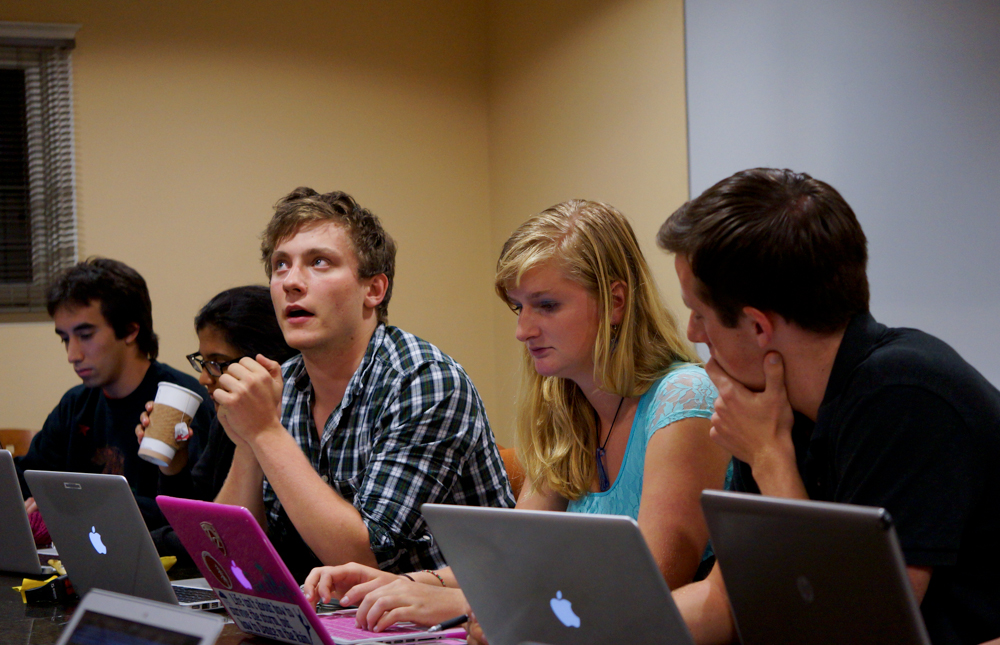
Although the 15th Undergraduate Senate passed no official measures beyond the approval of two funding bills, their meeting Tuesday night revealed plans for the quarter and featured important updates from several senators, including updates about proposals for new class schedules.
Senator Ilya Mouzykantskii ’16, chair of the student life committee, reported to the Senate that University Registrar Thomas Black has expressed desire to keep the proposed 8:30 a.m. start time for some classes, despite opposition from the student body and University administration suggesting that the new class scheduling proposal would be reworked so that the earliest class time would be 9:00 a.m.
“We continue to work with University administration to figure out what they are going to do and then once we know what they are going to do, we are going to bring it to the students if we perceive it to adversely affect them and then have a wider campus discussion about [the future proposal],” Mouzykantskii said.
Senate Chair Ben Holston ’15 also updated the Senate on the beginnings of a joint initiative with Cardinal Council — the representative council for Stanford varsity athletes — that seeks to guarantee athletes the ability to graduate in four years, regardless of major. Some majors currently have required classes that conflict with practice schedules.
“I believe every athlete should be able to finish their major within four years, regardless of major, and that is not the case right now,” Holston said.
Holston also said that the potential for a new class schedule would create an opportunity for the Senate and the Cardinal Council to discuss their concerns with various academic departments.
In open forum, the Senate discussed the timeline for acting on the Upperclassmen Constitutional Amendment, which requires the Senate to establish the number of upperclassmen senators each year.
“We hope to have a bill on the Senate floor, either as soon as next week or the week after,” Holston said.
Senator Brandon Caruso ’16, chair of the Mental Health Initiative, updated the Senate on University plans regarding residential dorm staff, particularly in freshmen dorms.
There had been some concern that the Peer Health Educator (PHE) program would be eliminated, but Caruso, after meeting with administrators from Residential Education, assured the Senate that the PHE program would not be decreased in size any time soon. Caruso also said that plans were in the works to equalize training among residential staff, so that each staff member is more capable of handling a wider variety of concerns.
In addition, Mouzykantskii also revealed plans for a program that would promote investigative journalism that explores issues relevant to students, using funds from the Senate Innovation Fund.
The Senate also passed $5,578 in funding bills.
Contact Andrew Vogeley at avogeley ‘at’ stanford.edu.
